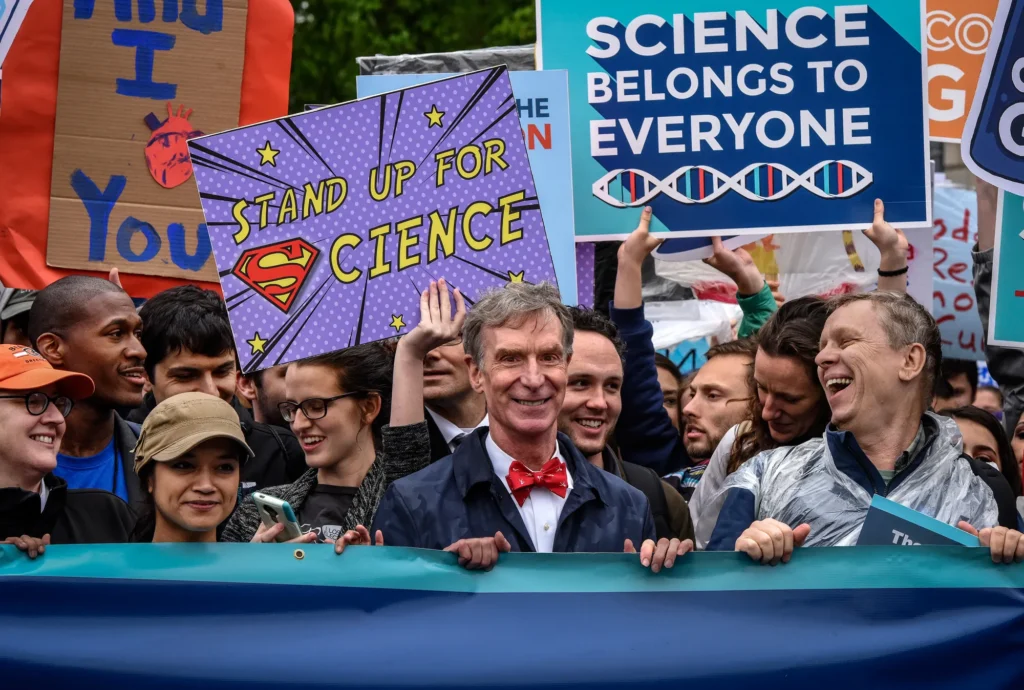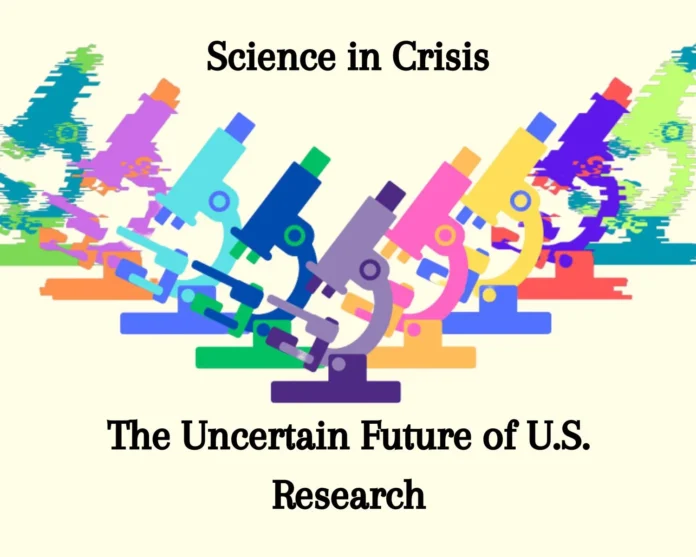Introduction
Science in Crisis—The 2025 American Association for the Advancement of Science (AAAS) meeting, themed “Science Shaping Tomorrow,” has taken on an urgent, unofficial theme—uncertainty. From February 13–15, scientists, policy experts, and advocates convened to address mounting concerns over research funding cuts, federal workforce reductions, and an increasingly unstable scientific environment.
As the U.S. government enacts policies that threaten scientific progress, many researchers describe the atmosphere as chaotic, confusing, and even paralyzing. Attendees voiced their fears, shared personal experiences, and discussed hopes for the future of American science. Here are the five most critical takeaways from the event.
1. Scientists Face Job Cuts and Research Uncertainty
The largest U.S. science conference is taking place against the backdrop of sweeping changes in government policy. Thousands of federal scientists, including those from the National Institutes of Health (NIH), Centers for Disease Control and Prevention (CDC), and Environmental Protection Agency (EPA), have been dismissed as part of government downsizing efforts.
“We are gathered in a moment of turmoil,” AAAS CEO Sudip Parikh acknowledged in his opening remarks. The consequences of these firings extend beyond personal careers—they directly affect public health, environmental safety, and global scientific progress.
Scientists warn that these cuts could have long-term impacts, including reduced capacity for pandemic response, environmental research, and climate change mitigation. The scientific workforce is already stretched thin, and further reductions could significantly slow advancements in medicine, technology, and environmental protection.
2. Fear and Silence Are Growing Among Researchers
Scientists attending the conference expressed fears about speaking out. Some even took precautions to avoid professional consequences, such as turning their name badges around or refusing to disclose affiliations when asking questions.
Science advocate Melissa Varga noted, “I’ve had so many people tell me, ‘I’m here as a private citizen, I’m not saying what my affiliation is.“ The climate of fear, driven by concerns over job security and political backlash, is creating a chilling effect on open scientific discourse.
The erosion of transparency and open discussion among researchers is a troubling sign for the future of evidence-based policymaking. Scientists argue that without open dialogue, the public may not fully understand the consequences of policy decisions that affect environmental protections, health research, and technological innovation.
3. The Future of U.S. Science Leadership Is at Risk
Historically, the U.S. has been a global leader in scientific innovation, attracting talent from around the world. However, uncertainty is now driving both domestic and international researchers to reconsider their future in the country.
Canadian bioethics researcher Nada Salem observed, “People come to America because of the strength of science. Now, more and more international scientists are talking about leaving.” Even U.S.-born researchers, like Aidan Zlotak, a Ph.D. student in quantum physics, are planning to leave, saying, “As soon as I finish my degree, my first priority will be getting out of the country.“
For decades, the U.S. has benefited from attracting top talent in STEM fields, fostering innovation that fuels economic growth and global competitiveness. However, if funding cuts and political instability continue, the nation may see a decline in its ability to remain at the forefront of scientific discovery. This loss of intellectual capital could have widespread consequences for industries such as healthcare, artificial intelligence, and space exploration.
4. Scientists Call for Unity and Collective Action
Despite growing anxiety, many researchers believe that silence is not an option. At the conference, Yale epidemiologist Gregg Gonsalves warned, “Your silence is not going to protect you. They’re coming for all of us.”
Organizations like the Union of Concerned Scientists are leading efforts to resist anti-science policies. They have gathered over 50,000 signatures on an open letter to Congress opposing grant freezes, budget cuts, and dismissals of federal scientists. Meanwhile, discussions continue on how to track the real-world impacts of political decisions on health, environmental safety, and the economy.
Others are calling for new alliances between universities, private sector companies, and independent research organizations to fill the gaps left by government cutbacks. Scientists argue that increased collaboration across different sectors could help maintain research progress even in the face of government instability.
5. Grassroots Movements Are Emerging to Defend Science

History has shown that collective action can make a difference. In 2017, after the first Trump administration took office, scientists organized the March for Science, drawing over a million participants worldwide. Now, a new movement is forming.
Graduate student JP Flores and a group of like-minded scientists have planned a national rally, Stand Up for Science, set for March 7 in Washington, D.C., and at least 30 other cities. While securing institutional backing has proven more challenging than in 2017, Flores and others believe grassroots efforts are key to protecting American scientific integrity.
Along with rallies, scientists are exploring ways to preserve public data, protect research funding through private grants, and increase public awareness about the consequences of anti-science policies. Some universities are even discussing the possibility of forming independent research funding bodies to counteract the potential decline in federal grants.
Conclusion
The 2025 AAAS meeting has highlighted deep concerns within the scientific community. Funding cuts, job losses, and government restrictions threaten not only individual careers but also the future of scientific progress in the U.S.
However, many researchers refuse to remain passive. By organizing, raising awareness, and uniting across disciplines, scientists are working to safeguard the American scientific enterprise—one that has long been a beacon for innovation, discovery, and global leadership.
As uncertainty grows, so does the need for action. The future of U.S. science depends not just on policymakers but on the collective voices of those who dedicate their lives to advancing knowledge and improving the world. By standing together, scientists can ensure that research continues to thrive, despite the challenges ahead.


